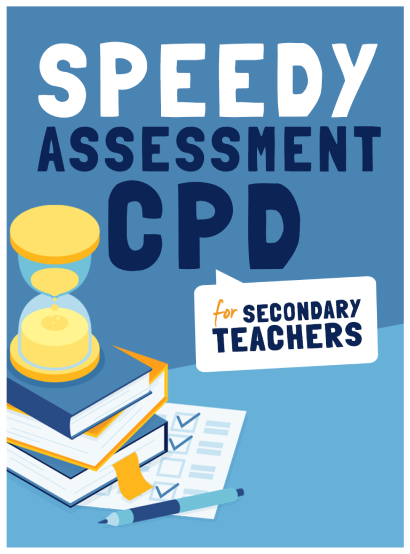New GCSE Grades and Exam Pressures for Teachers and Students – Why this Summer Will be no Holiday

"It is hard enough being a teenager without seeing Mr Chips melting down in front of you," As HOD, Jonathan Peel is trying to help ease the strain on both students and staff during exams…

In 2011 I began writing a blog to support my Year 11 class as they left for study leave. Seven years and 850,000+ views later I continue my hobby with the humbling thought that the internet has allowed my ideas and resources to be read all over the world – according to WordPress, there are only seven countries in the world where the blog has never been accessed.
English Teaching Resources by an English English Teacher which are free to use obviously resonate.
So this is where I start. This time of year is a killer for all teachers, and as an HOD I feel the twin jaws of fate beginning to close.
My responsibility to the students I teach is one jaw, my responsibility to my team of dedicated professional colleagues is the other. Like many HODs I want to protect both sides.
Let’s start with the students:
For the last two years we have been preparing students for either their GCSE/IGCSE examinations or their A levels.
We know our stuff and we can call on many years of collective experience – around 60 years in my small department. And then the government decides to tinker and all hell breaks loose.
This last two years has been unlike any other – new syllabi to embed; new marking patterns to predict and the curious phenomenon of applying inferences to data which by definition have no real relevance to any which have come before since the new examinations are often wholly different in content and form than those now lost.
The students need to feel safe. We need to ensure that the concerns or disagreements we have about material and content do not make it into the classroom. It is hard enough being a teenager without seeing Mr Chips melting down in front of you.
That said, we must be honest and open. There are times when we have to say ‘I don’t know – yet’ to both student and parent alike. It is important that they see the process by which we become more confident – it rubs off on them.
Today my students sat the first English Literature IGCSE paper of the year. A new syllabus, new (for us) 9-1 marking and a totally revamped examination.
We have worked hard to help them to be confident – low-stakes testing, practice essays, plenty of visual revision material along the English corridor – yet many are worried by the absence of past papers.
Somehow past papers are seen as a panacea for all ills and I get frequent requests for these to be sent to parents.
Secretly, I am quite glad there are none. I worry that an over-reliance on practising questions which, by definition will not be in the exams is not necessarily productive – yes, all writing helps, but how many students really do sit down with the mark scheme and methodically critique their own writing?
If they did, I can see a purpose; since they tend not to do so, I would rather they worked from the text and developed their knowledge in a flexible manner.
One issue, and it is a real one, just as it was for the majority of teachers in the country last year, is the concern about the change to 9-1 and where the grade boundaries might sit.
We are all affected. Come August there will be students who miss their required grades by one or two marks. These will include students whose life choices are ruined in the short term by the vagaries of marking and the application of boundaries.
Some will obtain a re-mark, yet even then, their university places will have been passed on to another student. In that situation, life stinks. It is not the students fault. We must be on hand to console and to advise in equal measure, and above all, not to judge.
A colleague posted on Twitter today that she had had a sleepless night due to the exams. My sleepless nights come in August. At this stage, I know we have done all we can and that the students are as ready as they will ever be (despite study leave) to sit these papers.
In August, we see the outcomes – the harsh reality of the results process – no hiding places for students and teachers alike.
And frustratingly little sense of responsibility from the examiners and exam boards when the marking is found to have been fallible.
Which brings me to my colleagues.
We share the students’ pain and joy. I try never to refer to ‘our’ results – these are the students’ results, whether success or failure and they deserve to bask in the limelight of their hard-earned grades.
Yet, given the fact that we have followed all the good practice accumulated in our many years of teaching; used and developed new strategies seen online or at education conferences; bought the latest text books; offered the same support classes; given the same 1-to-1 support as in the past, we feel the shame of a poor grade as though it were our own failing.
This is exacerbated in school by the twin evils of PRP and the league tables. I will spend hours breaking down our results by class and by teacher at the behest of my Director of Studies.
This is dangerous for my colleagues. Why should a teacher be seen as somehow unsuccessful if judged merely on their 9-to-4 ratio compared with previous years?
The students are different, sitting different papers and working with an utterly new context each year. Yet teachers will still feel responsible for the negative outcomes far more than for the extremes of success.
We do this to ourselves and as HOD we should be working to reduce this self-imposed stress level rather than to increase it.
This is not to remove any sense of accountability, but to suggest that a middle leader must look beneath to support and help, showing understanding and a willingness to work with a colleague rather than just to deliver instructions, before looking up towards senior managers who will hold them accountable for all.
This makes for a nerve-racking August. We all wait with baited breath for the outcomes – it is ridiculous that the notion of ‘is my job safe for another year?’ should rest on the efforts of a small group of students on a given day in May and June, over which we have absolutely no influence.
I trust my team utterly. I oversaw the employment of some of them and some met me when I was placed above them in the pecking order. We share, we laugh and we become frustrated, but we are a team – a department – and we work with and for each other as well as for our students.
I know how lucky I am.
Jonathan Peel is an English Head of Department at a school in Harrow. You can find him at jwpblog.com and follow him on Twitter at @mrpeel.











